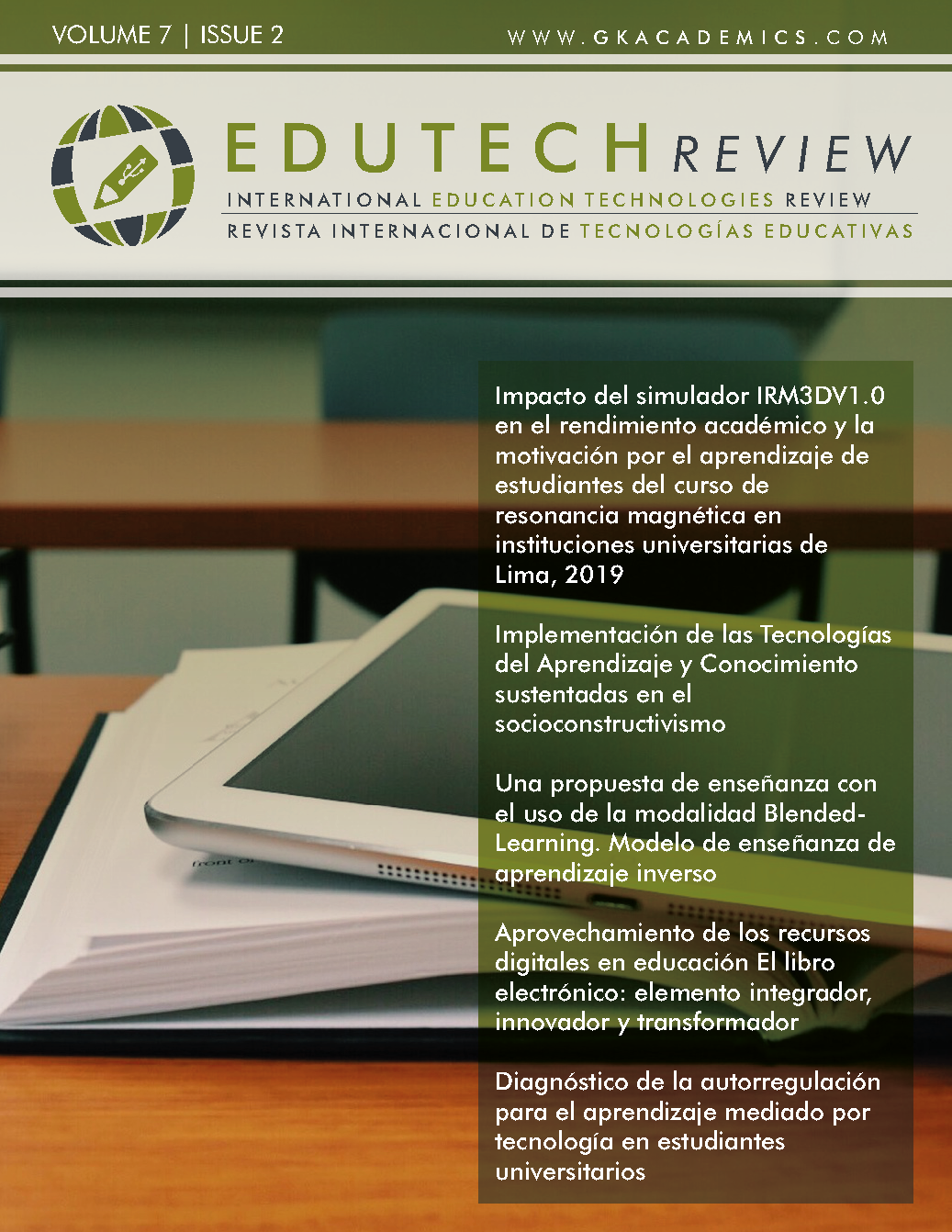Self- Regulation Learning Diagnosis through Technologies applied to University Students
DOI:
https://doi.org/10.37467/gka-revedutech.v7.2578Keywords:
self-regulation, autonomy, learning abilitiesAbstract
Self-regulation requires from the concentration capacity, work speed, precision, attention control and good productivity, being difficult to identify in paramount class students. The core of the research is to recognize the self-regulation ability shown and possessed by students. To achieve our objective 93 students volunteered, with an average age of 20 years (60 female and 33 male).The instrument developed for this attention test was D2 (Brickenkamp 2009), which consist on determining the emotional control as a self-regulatory ability. The test results indicate that concentration, precision (omitting or adding details) may vary compared with the norms and gender differences.
Global Statistics ℹ️
|
467
Views
|
480
Downloads
|
|
947
Total
|
|
References
Baisnée, V. (2008). Autonomie et langue de spécialité : enjeux et perspectives, Cahiers de l’APLIUT. 27 (2). Recuperado de https://journals.openedition.org/apliut/1406 DOI: https://doi.org/10.4000/apliut.1406
Benito, D. (2009). Aprendizaje en el entorno del e-learning: estrategias y figura del e-moderador. Revista de Universidad y Sociedad del Conocimento. 6 (2). Recuperado de http://rusc.uoc.edu/rusc/ca/index.php/rusc/article/download/v6n2-benito/107-285-2-PB.pdf
Brickencamp, J. (2012). D2 prueba de atención. TEA ediciones: Madrid, España.
Fréchette, S. (2008). Autorégulation de l'apprentissage de l'exercice du rôle de soutien à la motivation de l'élève au secondaire dans le cadre de la formation des enseignants (tesis doctoral). Université du Québec à Montreal. Recuperado de https://archipel.uqam.ca/1144/1/D1645.pdf
Gros, B. (2018). La evolución del e-learning: del aula virtual a la red. RIED. Revista Iberoamericana de Educación a Distancia. 21(2). DOI: https://doi.org/10.5944/ried.21.2.20577
Mayora, I. (2013). Estrategias Metacognitivas aplicadas en la comprensión de la lectura por estudiantes de Inglés I. Caso Vice – Rectorado “Luis Caballero Mejías”. Revista de investigación. 37(78). Recuperado de revistas.upel.edu.ve/index.php/revinvest/article/view/3250
Pereira, L. (2005). La autorregulación como proceso complejo en el aprendizaje del individuo peninsular. Polis. (11).
Requena, M. (2017). Modelo de andamiaje a la autorregulación del aprendizaje en la educación virtual universitaria. Referencia pedagógica. (1).
Rowe, F., y Rafferty, J. (2013). Instructional design interventions for supporting self-regulated learning: enhancing academic outcomes in postsecondary e-learning environments. Journal of Online Learning and Teaching, 9(4).
Viñals, A. y Cuenca, J. (2016). El rol del docente en la era digital. Revista Interuniversitaria de Formación del Profesorado. 30 (2). Recuperado de http://www.redalyc.org/articulo.oa?id=27447325008
Downloads
Published
How to Cite
Issue
Section
License
Those authors who publish in this journal accept the following terms:
- Authors will keep the moral right of the work and they will transfer the commercial rights.
- After 1 year from publication, the work shall thereafter be open access online on our website, but will retain copyright.
- In the event that the authors wish to assign an Creative Commons (CC) license, they may request it by writing to publishing@eagora.org







